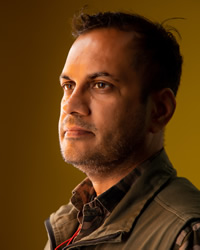Indian, English-speaking in South Africa

Photo Source:
Anilsharma26 - Pixabay
|
Send Joshua Project a map of this people group.
|
| People Name: | Indian, English-speaking |
| Country: | South Africa |
| 10/40 Window: | No |
| Population: | 500,000 |
| World Population: | 577,000 |
| Primary Language: | English |
| Primary Religion: | Hinduism |
| Christian Adherents: | 10.00 % |
| Evangelicals: | 1.00 % |
| Scripture: | Complete Bible |
| Ministry Resources: | Yes |
| Jesus Film: | Yes |
| Audio Recordings: | Yes |
| People Cluster: | South Asia - other |
| Affinity Bloc: | South Asian Peoples |
| Progress Level: |
|
Introduction / History
South Africa is a mineral rich nation located at the southern tip of the African continent. The British took over the Dutch colony of South Africa in 1806. South Africa became part of the British Empire. During the British period thousands of English-speaking Indians came to South Africa as indentured servants and lower-level administrators. The descendants of those Indian peoples continue to live in South Africa today. Many now speak English as their primary and family language. English is one of the 11 official languages of South Africa. South Africa became an independent country in 1909. The white citizens of South Africa imposed an apartheid system of racial segregation in 1948. Apartheid was legally ended in 1994. The Asians living in South Africa occupy a middle economic position between the population of European descent and the native African peoples.
What Are Their Lives Like?
People of Asian descent make up nearly 3% of the total South African population. For the most part they try to keep a low profile and live outside of the political spotlight. Many Indians own and work in shops, hotels and restaurants. They work as middle level managers in South African tourism and mining industries. Gold was discovered in South Africa in the 19th century. Diamonds, platinum, titanium, iron ore, coal, and manganese are also found in the country. Marriage to one spouse is the norm for Indians in South Africa. Parents encourage their children to obtain college degrees. The culture of the Indians is varied depending upon what part of India the people are from. For example, the Tamils of South India have a much different cuisine and culture than the Punjabis of northern India or the Bengalis of eastern India.
What Are Their Beliefs?
The majority of the Indians living in South Africa claim to be Hindus. They serve the gods of the Hindu pantheon. Hindus believe that by performing rituals and good works that they will attain moksha or freedom from the endless cycle of birth, death and rebirth. They visit Hindu temples and offer prayers, food, flowers, and incense to their gods in hope of gaining protection and benefits. Hindus do not have a personal or familial relationship with their gods like Christians do with their heavenly Father. There are many forms of Hinduism, each with its own deities and beliefs. The main yearly holidays of the Hindu people are Holi, the festival of colors and the start of spring, Diwali, the festival of lights, Navratri, the celebration of autumn and Rama Navami, Rama's birthday. Only a tiny fraction of Indians in South Africa are evangelical Christians.
What Are Their Needs?
The Hindus of South Africa must come to understand that Jesus is more than another Hindu god or guru. He alone can forgive them from their sins and give them eternal life. Higher education or material success will not bring them the peace and joy they seek.
Prayer Points
Pray that believers in South Africa will reach out and share the good news with their Hindu neighbors. Pray that the Spirit produces a hunger for Biblical truth in the leaders of the Hindu community in South Africa. Ask the Lord to raise up a Disciple Making Movement among the Hindus of South Africa in this decade.